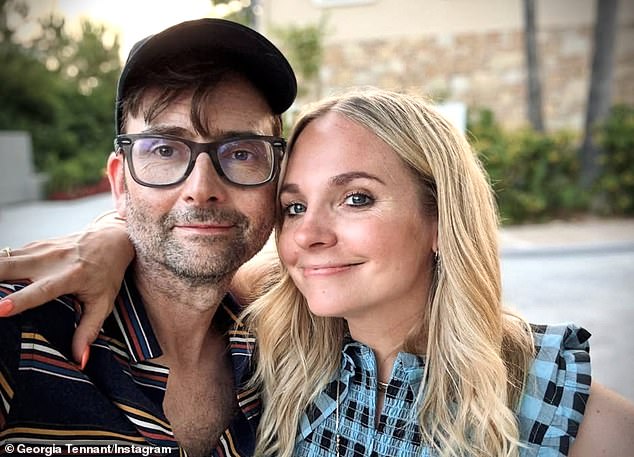
Georgia Tennant Reveals Children’s Neurodiversity, Discusses Navigating Family Life
Georgia Tennant Opens Up About Neurodiverse Family Life
Georgia Tennant, 40, wife of Doctor Who star David Tennant, has shared insights into their unique family dynamics, revealing that two of their five children are neurodiverse. The couple, married since 2011, navigates challenges that make traditional family meals rare—reserving them for occasions like Christmas.
A Non-Traditional Household
Georgia, a producer and actress, explained on Russell Howard’s Five Brilliant Things podcast: “We’ve got a lot of neurodiverse kids. A couple don’t like eating around others, so they eat in separate rooms.” Neurodiversity, which includes conditions like autism and ADHD, affects how individuals process experiences, and Georgia’s family adapts accordingly. With children requiring different meals and environments, she spends hours “serving different people in different rooms.”
[Image: Georgia and David Tennant with their children at an event.]
Caption: The Tennant family embraces a unique routine to accommodate their children’s needs.
Rare Family Dinners
The chaos of group outings highlights their daily reality. “We’ll go to a pub, and it’s a nightmare. They’re crawling on the table, one’s got headphones on,” Georgia laughed. Despite the challenges, she cherishes their differences: “It’s fascinating how two people can create such a diverse smorgasbord of humans.”
Early Motherhood and Blended Family
Georgia became a mother at 16 with her son Ty, now 23, whom David later adopted. Reflecting on her unexpected journey, she said, “It was easier at 16—no preconceived ideas about parenting’s difficulties.” Ty’s positive experience encouraged the couple to expand their family, welcoming Olive (14), Wilfred (12), Doris (10), and Birdie (5).
[Image: Georgia and David on the Doctor Who set in 2008.]
Caption: The couple met on set when Georgia played David’s on-screen daughter, Jenny.
Embracing Individuality
Georgia also opened up about her own quirks, like using a custom plate with compartments to keep food separate. “I’ve always needed control—nothing touching,” she shared, noting her friend crafted the dish for her 40th birthday. Meanwhile, David’s love for “chaotic” sandwiches amuses her, showcasing their contrasting preferences.
A Happy Chaos
While parenting neurodiverse children brings hurdles, Georgia emphasizes acceptance: “I wouldn’t change anything. Their uniqueness is what makes us.” Her journey—from teen mom to managing a bustling household—reflects resilience and humor, proving there’s no “normal” in family life.
[Image: Georgia with her custom compartmentalized plate.]
Caption: Georgia’s personalized plate helps her manage food preferences, symbolizing her embrace of self-awareness.
Neurodiversity affects 15–20% of people, shaping how families like the Tennants thrive on adaptability and love over tradition.


